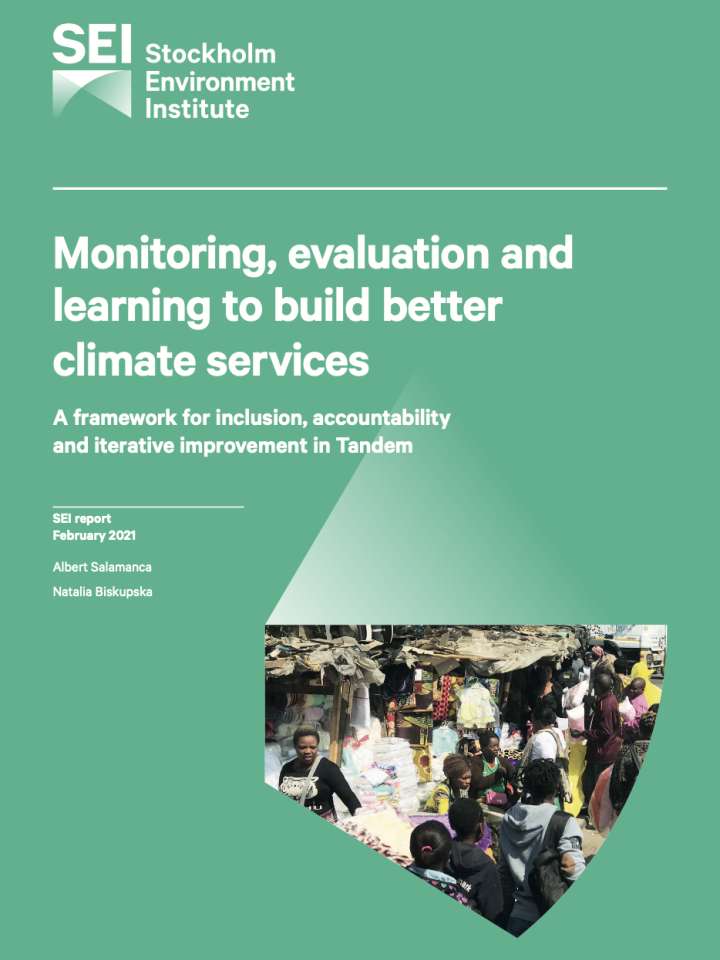Monitoring, evaluation and learning to build better climate services: A framework for inclusion, accountability and iterative improvement in tandem
This discussion brief focuses on monitoring, evaluation and learning as key components of Tandem and offers guidance on how to integrate them to produce ever-more useful knowledge and thus maximise the benefits of the Tandem framework for co-designing climate services. The Tandem framework guides providers and intermediaries of climate services through seven iterative steps to engage with the intended users to produce relevant and actionable information and sustainable climate services that meet the users’ planning and decision-making needs. The resulting process is designed to build trust, capacity and shared understanding among providers, intermediaries and users, and to facilitate extended collaboration. An active monitoring, evaluation and learning (MEL) process is thus integral to the ethos of co-design and co-production in Tandem.
The key messages of the briefing include:
- Monitoring, evaluation and learning are integral to the ethos of co-design and co-production in Tandem, an SEI framework to foster collaboration among climate information providers, users and intermediaries to develop sustainable climate services that truly meet users’ needs.
- The principles of outcome mapping provide a solid foundation for monitoring, evaluation and learning systems within Tandem, as they take a systems approach, account for complexity and focus on outcomes among different stakeholders.
- Effective learning and iterative improvement will not result from haphazard processes and systems; they require intentional design at the outset, including clear identification of stakeholders and the project’s sphere of influence, a strong theory of change and regular follow-up.
- It is important to identify the desired outcomes in each stakeholder group as well as markers of progress to support monitoring and evaluation.
Explore further
